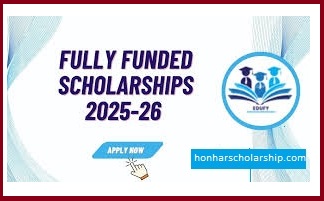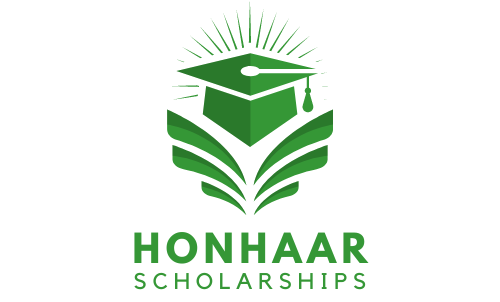
In the ever-evolving landscape of global academia, where the pursuit of knowledge is both a passion and a privilege, the question of where to undertake a Higher Degree by Research (HDR) is paramount. For the visionary scholar of 2026, the path is not merely about finding a university but discovering an ecosystem designed to catalyse innovation, accelerate impact, and nurture individual potential. Standing apart in this quest is Bond University, Australia’s first private, not-for-profit university, and its premier offering: the Fully Funded HDR Scholarship. This is not just a financial grant; it is an invitation to join a vanguard of thinkers in an environment where ambition is not diluted by overcrowded lecture halls, but sharpened by personalised attention and unparalleled resources.
Beyond the Brochure: The Bond University Ethos
To understand the value of the Bond HDR Scholarship, one must first appreciate the unique academic philosophy of Bond University itself. In a nation renowned for its high-quality education, Bond carves a distinct niche. Its model is built on a commitment to small, intimate cohorts, a three-semester-per-year timetable, and a deeply embedded culture of industry connectivity. For a research student, this translates into an experience devoid of anonymity.
Unlike at larger institutions, where doctoral candidates can sometimes feel like a number, Bond’s research culture is intensely collaborative and supervisory. Your research journey is not a solitary trek but a guided expedition with world-class academics who are leaders in their fields and, crucially, are accessible. The low student-to-staff ratio ensures that your supervisor’s door is always open, fostering a dynamic dialogue that can pivot a research project from interesting to groundbreaking. This mentorship is the bedrock upon which the HDR scholarship is built, offering an intellectual partnership that is as valuable as the funding itself.
Deconstructing the Scholarship: A Fully Funded Launchpad
The term “fully funded” is often used, but its meaning at Bond is comprehensive and designed to liberate the scholar from financial worry, allowing a complete focus on research excellence. The Bond University HDR Scholarship for 2026 typically encompasses:
-
Tuition Fee Remission: Full coverage of tuition fees for the standard duration of the program (a PhD is typically 3 years, with the possibility of a 6-month extension).
-
Living Allowance (Stipend): A tax-free stipend paid fortnightly to support living costs. The value is competitive and aligned with Australian Government Research Training Program (RTP) rates, ensuring a comfortable standard of living on the Gold Coast.
-
Relocation Grant: A lump sum payment to assist with the costs of moving to the Gold Coast, whether from within Australia or from overseas, facilitating a smooth transition.
-
Overseas Student Health Cover (OSHC): For international students, the scholarship provides a single membership OSHC policy for the standard duration of the visa, a critical and costly component of studying in Australia.
This financial package removes the primary barrier to advanced research, democratising access to a world-class education. It empowers the scholar to dedicate their mental and creative energy entirely to their thesis, their data, and their discoveries.
The Research Ecosystem: Laboratories, Libraries, and Beyond
A scholarship is only as good as the environment it grants you access to. Bond University’s campus on the Gold Coast is a state-of-the-art facility that feels more like a corporate headquarters than a traditional university. HDR students are integrated into this ecosystem from day one.
-
Cutting-Edge Facilities: From the transformative Centre for Research in Evidence-Based Practice (CREBP) to the advanced legal clinics in the Faculty of Law, the FinTech Hub, and the immersive digital labs, Bond invests in infrastructure that matches its academic ambition. Research is not conducted in a vacuum but with the tools that define the forefront of modern inquiry.
-
The Library as a Command Centre: The John and Alison Kearney Library is a hub of resources, with extensive digital databases, specialist librarians trained to support researchers, and dedicated silent study zones and collaborative spaces designed for the HDR cohort.
-
The Bond University Research Repository: Scholars are encouraged and supported to publish their findings, contributing to the global knowledge base and building their academic profile from the outset.
The Gold Coast: A Living Laboratory
The location of Bond University is a strategic advantage often overlooked. The Gold Coast is far more than a tourist destination; it is a dynamic, rapidly growing city that serves as a living laboratory for a multitude of research disciplines.
-
For a public health or sports science researcher, it’s a hub of athletic excellence and lifestyle medicine.
-
For an environmental scientist or marine biologist, it’s bordered by World Heritage-listed rainforests and diverse marine ecosystems.
-
For a business, entrepreneurship, or tourism scholar, it’s a thriving economy with a vibrant startup culture and a world-leading events calendar.
-
For a sociologist or urban planner, it’s a fascinating case study in rapid urban development and multicultural integration.
This context provides unparalleled opportunities for fieldwork, industry engagement, and applied research that has immediate, real-world relevance.
The Application Alchemy: Crafting a Successful Proposal
Securing a fully funded scholarship is highly competitive. The selection panel is not just looking for academic excellence; they are searching for a compelling research vision and a perfect fit with the university’s strengths.
-
Find Your Supervisory Match: This is the most critical step. Do not submit a generic application. Scour the Bond University website, identify researchers whose work genuinely aligns with your interests, and reach out to them before you apply. Draft a concise, enthusiastic email introducing yourself, your academic background, and your preliminary research idea. Gauge their interest and willingness to supervise. An application backed by a potential supervisor is infinitely stronger.
-
Develop a Knockout Research Proposal: This is your centrepiece. It must be clear, concise, and compelling. It should articulate:
-
The Research Question: What specific problem or gap in knowledge are you addressing?
-
Originality and Significance: Why does this matter? How will it contribute to the field?
-
Methodology: How will you practically answer your research question? Demonstrate feasibility.
-
Timeline: Show you understand the scope of a 3-year project.
-
-
Showcase Your Academic Pedigree: Your academic transcripts, awards, and publications (if any) are your evidence of capability. Ensure your CV is meticulously formatted and highlights any research experience, conferences, or relevant skills.
-
Secure Powerful References: Choose referees who can speak specifically to your research potential and intellectual rigour, not just your character. Provide them with your research proposal and CV so their references can be detailed and supportive.
The Scholar’s Journey: More Than a Degree
An HDR at Bond is a transformative professional and personal journey. The university’s dedication to professional development ensures that graduates are not just experts in their field, but are also equipped with the transferable skills to lead in academia, industry, or the public sector. Workshops on grant writing, thesis writing, public speaking, and teaching pedagogy are integral to the program.
Furthermore, the intimate cohort of HDR students creates a powerful network of peers—a collaborative, multinational community of future leaders who will support each other long after they have crossed the graduation stage.
Conclusion: An Investment in Intellectual Pioneering
The Bond University HDR Scholarship for 2026 is more than a financial package; it is a strategic investment in a particular kind of intellectual pioneer. It is for the scholar who thrives on connection rather than crowd, who values mentorship alongside autonomy, and who believes that research should be both rigorously academic and resolutely relevant.
